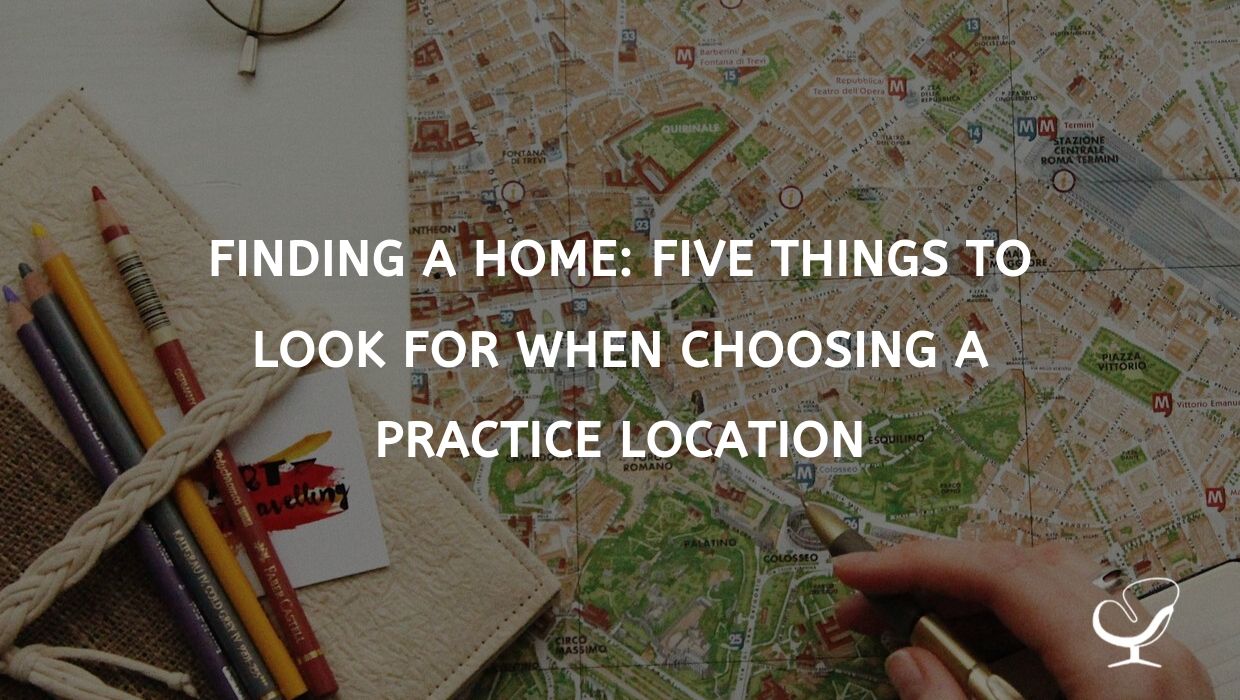Location, location, location. I’ve heard that a business’ location can be the determining factor of it succeeding or failing. I’ve seen many businesses close only for another one to open in the same space and share the same fate as its predecessor. Some locations just aren’t ideal for particular industries and businesses, including clinicians and therapists. Private practice owners must consider having an optimal location suited for their needs and the populations they serve.
Parking
I can’t speak for others, but I avoid areas that have limited parking. This could be true for your clients. I suggest finding an office that has ample parking available, whether it’s solely designated to your office/building (i.e. a deck or lot), or street parking within reasonable walking distance. Try to make sure there is feasible parking during the times you plan to see clients.
Amenities
People want to visit, and work, in nice offices. Simple amenities such as internet, an elevator (if needed), a coffee maker, a kitchen area, multiple bathrooms, and a waiting area can greatly influence the atmosphere and environment of your business. Identify what amenities are most important to you and keep them in mind when searching for an office space. Try to find an office that has all or most of what you’re looking for.
Convenience for Clients and Yourself
You’ll be in your office more than any of your clients, so choose a location that is beneficial for you and meets your specific needs. One of my needs was being able to work in close proximity to where I live. As business owners we must also consider our clients their needs. You won’t be able to please everyone, but considering the interests of all parties will help you make a more informed decision.
High Traffic Area
One of the first questions I receive from prospective clients is “Where is your office located?” Having an office in an area your target population frequents can be beneficial for converting inquiries to clients. Also, consider an area that isn’t too far from a major road or intersection.
Privacy
Remember that our services are supposed to be confidential. It’s important to make sure your office is secure and that sessions cannot be overheard by people walking by or sitting in the waiting area. Most therapists I know typically have noise machines outside of their door to minimize the discussions heard from within the room.
Bonus: Cost
The price of an office space or building is a major determinant for what office you choose. I recently had one office and wanted to have a second location. My first office very affordable was in a good location and had most of what I was looking for. I hoped to replicate that with my second office.
One office I reviewed did not meet my needs. The internet wasn’t included in the price and I did not like the environment. The office did not seem to be well maintained and the atmosphere felt very dreary. I did not think my clients would like it so I had to find another prospective location. The next office I found had everything I was looking for, but the price was more than what I wanted to pay. Ultimately, I decided that spending extra to have a high quality office was more beneficial for my business than trying to cut corners and save money.
Final thoughts
Many factors must be considered when choosing an office. I’m currently working out of three offices. I have two offices solely to myself and share the third office with another private practice owner. I did that mostly out of convenience for my clients, but it was at a detriment to myself as my caseload doesn’t justify me having multiple locations at this time. However, this will be mitigated as my practice grows and I possibly add another clinician or two in the future.
If you can relate to my post now or in the future as your practice expands, I would suggest reading two other articles on this site: “Your Private Practice Office Do’s and Don’ts” and “Considerations When Adding an Additional Private Practice Location”.
 Michael Gilliard II was born and raised in Charleston, SC. He a Licensed Professional Counselor (LPC) and Nationally Certified Counselor (NCC) in Georgia. His private practice is named Ujima Counseling, Coaching, and Consulting. It is based on the Kwanzaa principle of Ujima which means “to build and maintain our community together and to make our brother’s and sister’s problems, our problems and to solve them together.” He is also working on experiences which integrate mental health and XR technology. Please contact him to learn more.
Michael Gilliard II was born and raised in Charleston, SC. He a Licensed Professional Counselor (LPC) and Nationally Certified Counselor (NCC) in Georgia. His private practice is named Ujima Counseling, Coaching, and Consulting. It is based on the Kwanzaa principle of Ujima which means “to build and maintain our community together and to make our brother’s and sister’s problems, our problems and to solve them together.” He is also working on experiences which integrate mental health and XR technology. Please contact him to learn more.

